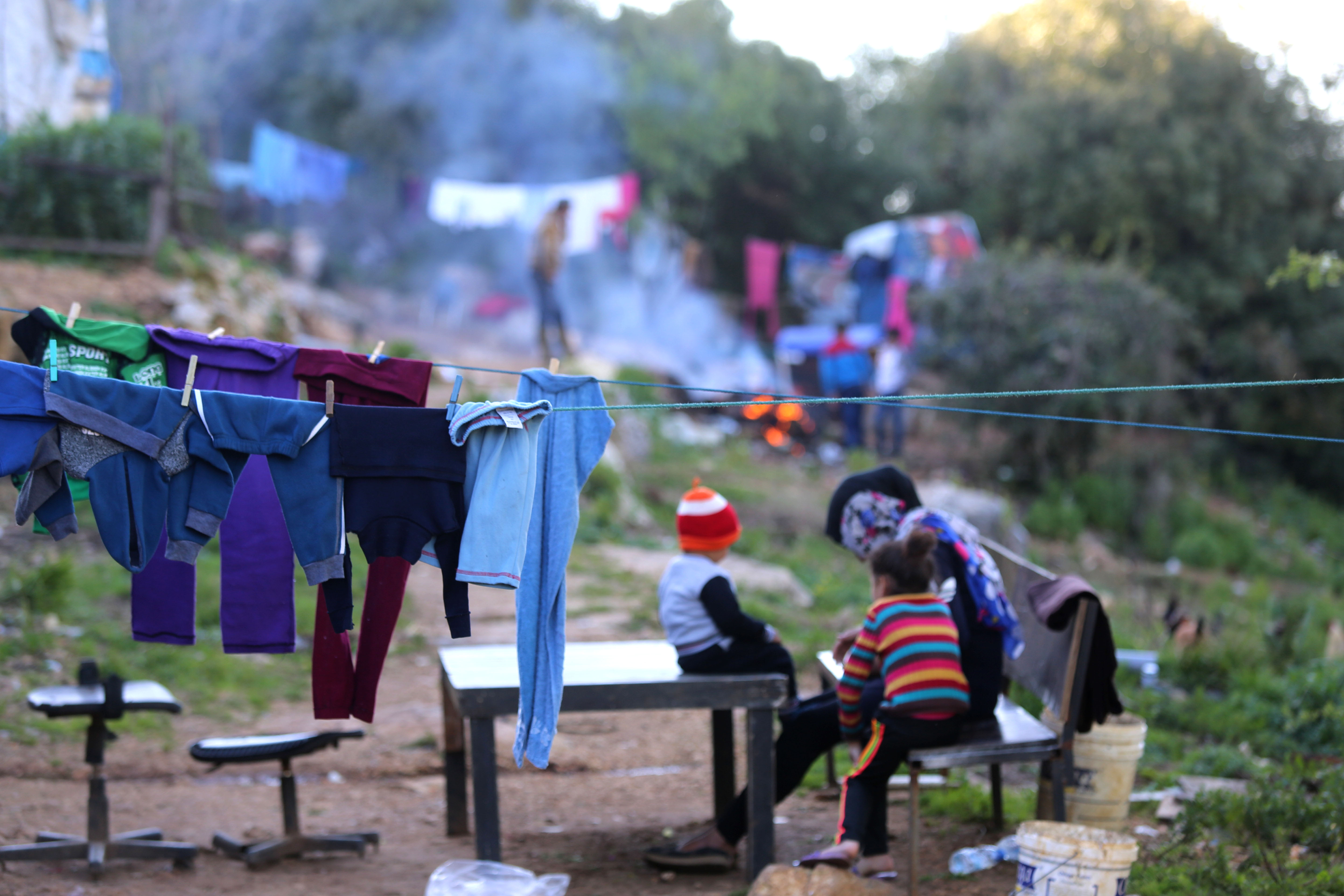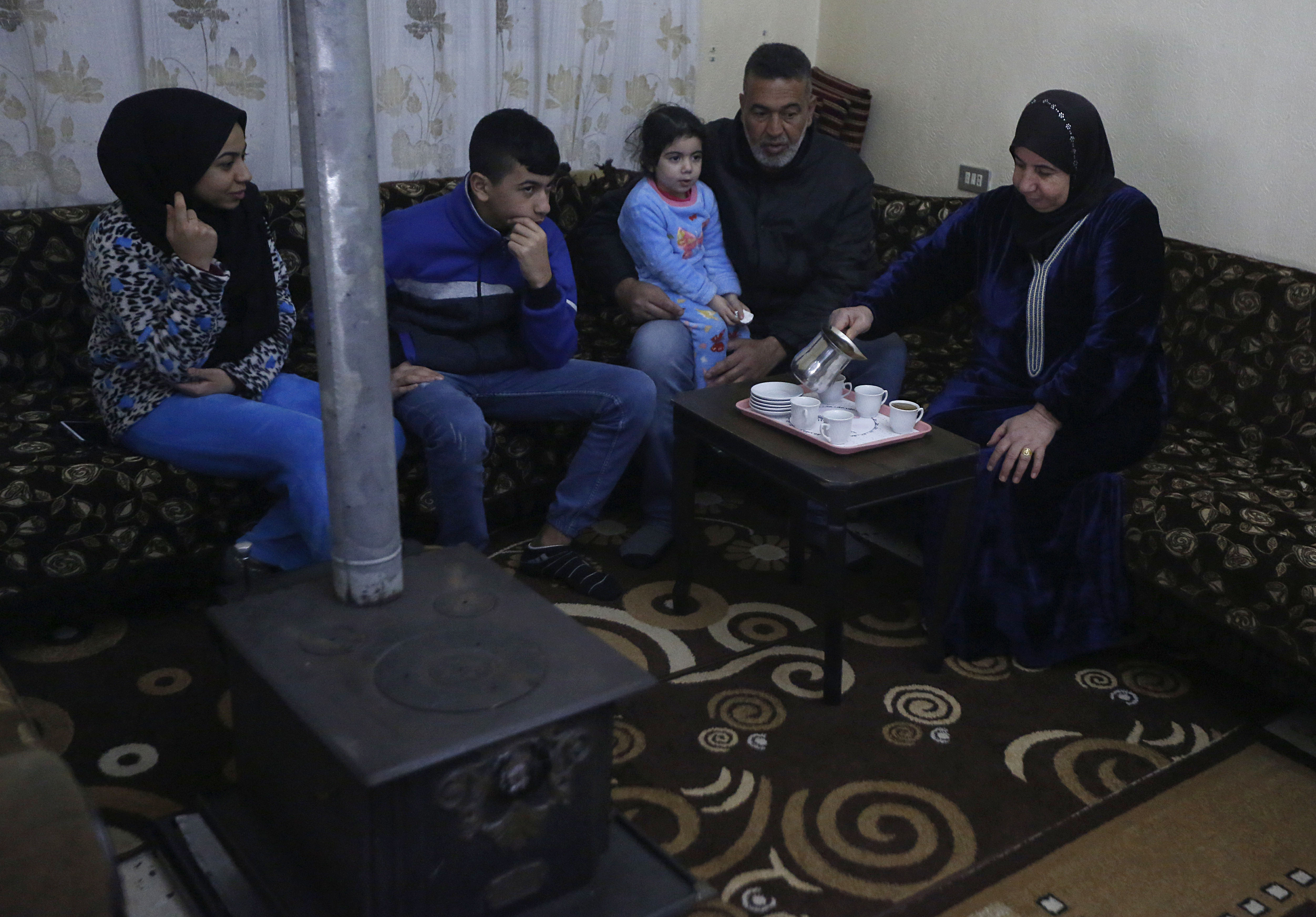BEIRUT, April 19 (Xinhua) -- Ahmad Abbas began telling the story of his life with a sigh ... "We are living a miserable life."
Seven years ago, Abbas and his family fled the war in Homs, Syria. Now they live in a small old apartment in Ketermaya about 40 km southeast of Lebanon.
The family of five live on the meagre factory wages of Abbas's elder son. Yet they are among the very few Syrian refugees lucky enough to be able to rent an apartment in Lebanon.
The Syrian war has driven some 1.5 million people to Lebanon, most of whom live in camps scattered around the country. The Abbas family used to live in one of them.
The camp Abbas had lived in lies deep in the mountains near Ketermaya. It is made up of dozens of dilapidated tents in an olive grove on the hillside.
An unbearably stinky canal runs by it, carrying untreated sewage from the camp. Hundreds of people take turns to use eight toilets, four for men and four for women.

Kids play at Ketermaya's camp in an olive-tree field on the hillside inside a valley in the mountain area of Ketermaya, southeast of Beirut, Lebanon, March 8, 2019. (Xinhua/Bilal Jawich)
Sometimes two families cram in one tent. In the freezing winter, people have to collect and burn paper for heating. Life in the camp was "completely misery," Abbas said.
SETTLING DOWN
Fed up with life in the camp, the Abbas family moved to the apartment they live in now. It is old, small, poorly furnished, without heating, and costs 350 U.S. dollars per month.
Every month Abbas and his elder son struggle to find enough money to pay the rent. They often have to turn to relatives or charity to make ends meet.
"It is true that we have moved to an apartment now, but life is still too hard ... we are not sure if we can continue paying for this apartment and all other expenses," he said.

The family of Ahmad Abbas sit together in a rented apartment in Ketermaya, southeast of Beirut, Lebanon, March 8, 2019. (Xinhua/Bilal )
United Nations High Commissioner for Refugees (UNHCR) Chief Filippo Grandi told Xinhua that cash programs by the agency usually target the most vulnerable refugees, which means that some of the refugees may not be given any money.
Grandi explained that there are other kinds of support available to all refugees such as residency permits in addition to securing education for refugees' children in cooperation with the education ministry in Lebanon.
"Some refugees do not see this as a direct assistance but this has been given within a structured program," he said. "We have limited resources so we should only target the most vulnerable."
CAN WE GO HOME?
"I lived a happy life back in Homs," Abbas recalled life before the war broke out.

Ahmad Abbas buys vegetables in Ketermaya, southeast of Beirut, Lebanon, March 8, 2019. (Xinhua/Bilal Jawich)
Back then, they lived in a three-storey house. Now it is in ruins. A rocket destroyed it, killing Abbas's eldest son.
As he mentioned the eldest son, his wife, who had been sitting quietly by the side, burst into tears. "My son was a great child. He went to college, he could have a bright future. My heart burnt into ashes at the news of his death," she said.
There was a time when Abbas could afford a good education for all his children. Now just one of the children is going to school only because the Lebanon government is paying for his fees.
In Homs, Abbas was a well-known mechanic. In Lebanon, he is just an old man on foreign soil. "I am 50 years old. What can I do?" he said.
"My father used to buy me everything I asked for. I had a beautiful house with a large garden where I played with my friends," Bilal, the youngest son, said with dreamy eyes.
"Can we go home?" Bilal couldn't wait to get back to their home in Homs. His father, Abbas, didn't reply. He could only pray for the eight-year war to end soon. Enditem
(Video reporters: Li Liangyong, Wang Yachen, Luo Chen, Zheng Kailun; Video editors: Xin Jianqiang, Yang Dingdu, Wang Dier)



